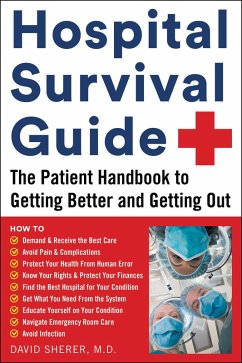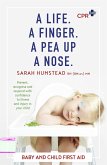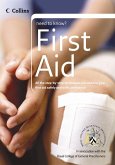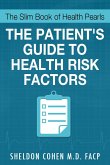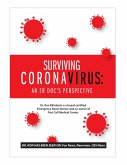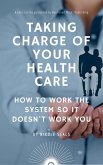WHY YOU SHOULD NEVER HAVE AN OPERATION IN JULY AND OTHER LIFESAVING ADVICE!
"This book offers practical advice about how to keep yourself free from harm and error in hospitals, and how to assert yourself in cases such as getting stuck with a bad roommate or a rude doctor. Includes chapters on taking children to the hospital and how to be prepared before an emergency." The Wall Street Journal
Hospital Survival Guide: The Patient Handbook to Getting Better and Getting Out is the essential patient handbook to ensure that you and your family emerge from hospital visits healthier than before checking-in and without having to endure excessive stays, pain or indignities. Includes practical tips, warnings and surprising information you doctor might not tell you, such as the fact that July, when the new interns start, is the most dangerous month to have a procedure done at a teaching hospital; EMLA anesthetic cream can be requested to be used on children's skin, allowing for less painful I.V. starts; and washing off all iodine-based antiseptics thoroughly after surgery can prevent chemical burns. Proven tips for reducing hospital bills are also presented.
Dr Sherer will teach you how to:
"I recommend this book for everyone, especially people who are undergoing their first operation in a hospital. Being aware of the services offered or not offered in the hospital and learning ways to reduce anxiety can be invaluable throughout one's hospital stay. For health care providers, the Hospital Survival Guide offers excellent insight into many of the uncertainties that patients face as they enter into the unknown world of the hospital. Even though we hear the alarming statistics every day, the book is a powerful reminder of all of the mistakes that can be made in the course of care and what we all can do to reduce the likelihood of experiencing a medical error ourselves." P&T® Journal
"This book offers practical advice about how to keep yourself free from harm and error in hospitals, and how to assert yourself in cases such as getting stuck with a bad roommate or a rude doctor. Includes chapters on taking children to the hospital and how to be prepared before an emergency." The Wall Street Journal
Hospital Survival Guide: The Patient Handbook to Getting Better and Getting Out is the essential patient handbook to ensure that you and your family emerge from hospital visits healthier than before checking-in and without having to endure excessive stays, pain or indignities. Includes practical tips, warnings and surprising information you doctor might not tell you, such as the fact that July, when the new interns start, is the most dangerous month to have a procedure done at a teaching hospital; EMLA anesthetic cream can be requested to be used on children's skin, allowing for less painful I.V. starts; and washing off all iodine-based antiseptics thoroughly after surgery can prevent chemical burns. Proven tips for reducing hospital bills are also presented.
Dr Sherer will teach you how to:
- Find the Best Hospital for Your Condition
- Demand & Receive the Best Care
- Avoid Unnecessary Pain & Complications
- Protect Your Health from Human Error
- Navigate Emergency Room Care
- Educate Yourself on Your Condition & Your Rights
- Protect Your Financial Health & Reduce Your Bills
- Choose Between Bundling Services Versus Fee for Service Pricing/Pros & Cons
- Work the System to Get What You Need
- Maximize New and Innovative Ways to Use the Internet for Self-Education
- Deal with the Impact of Pandemic Emergencies, Natural Disasters and the Opioid Crisis on Your Care
- Learn More about Artificial Intelligence, Robotic surgery and Using Big Data
- Decide if Medicare for All is Feasible and the Social Determinants on the Allocation of Healthcare
- And Much Much More!
"I recommend this book for everyone, especially people who are undergoing their first operation in a hospital. Being aware of the services offered or not offered in the hospital and learning ways to reduce anxiety can be invaluable throughout one's hospital stay. For health care providers, the Hospital Survival Guide offers excellent insight into many of the uncertainties that patients face as they enter into the unknown world of the hospital. Even though we hear the alarming statistics every day, the book is a powerful reminder of all of the mistakes that can be made in the course of care and what we all can do to reduce the likelihood of experiencing a medical error ourselves." P&T® Journal
Dieser Download kann aus rechtlichen Gründen nur mit Rechnungsadresse in A, D ausgeliefert werden.

